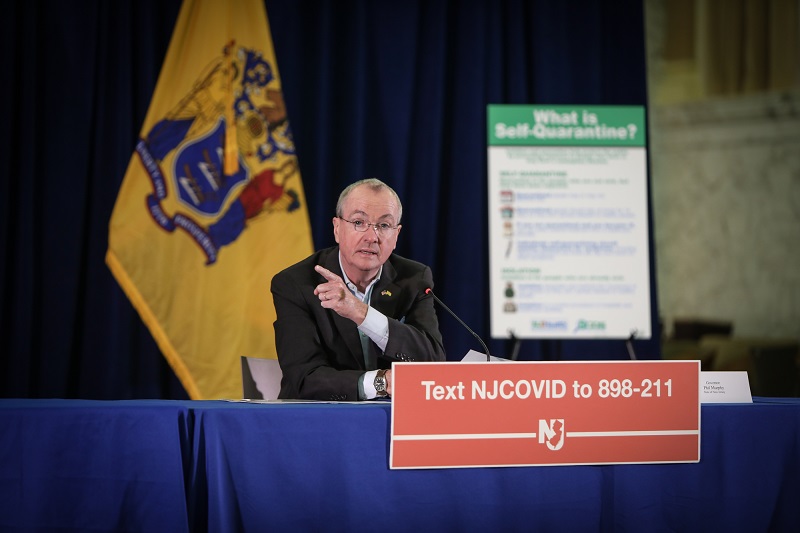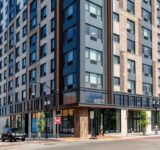Gov. Phil Murphy speaks during a recent press briefing on the state’s efforts to combat the spread of COVID-19 and help residents who are affected by the crisis. — Photo by Edwin Torres/Governor’s Office
By Joshua Burd
Apartment tenants in New Jersey may now tap their security deposits to help pay rent during the COVID-19 crisis, under a newly signed executive order by Gov. Phil Murphy.
The governor on Friday announced the new option for renters who are struggling financially, waiving provisions of statutory law that prohibit the use of security deposits for rental payments. That will enable tenants to instruct landlords to use the deposits to offset rent or back rent, in a move that came in cooperation with the New Jersey Apartment Association.
“We recognize the anxiety that so many are feeling about looming rent payments, and during this emergency renters should have the ability to utilize their security deposit to help them stay in their place of residence,” Murphy said. “While this action does not resolve the broader financial concerns of New Jerseyans, this will provide critical short-term support as the first of the month approaches. My administration will continue working with the housing community and federal government to develop long-term solutions to this crisis.”
Speaking during his daily press briefing in Trenton, Murphy thanked the NJAA “for their support and assistance and for encouraging landlords to waive late fees in this emergency period.” The association reciprocated, as it recounted its other efforts to work with tenants during the crisis.
“As stated by Governor Murphy, ‘we are all in this together,’” said David Brogan, the NJAA’s executive director. “As such, when tenants who can pay rent do so, it provides the necessary revenue for landlords to not only operate and maintain those buildings, but also, it helps landlords help those tenants who are truly in need.”
Under the executive order, tenants will not be obligated to make any further security deposit relating to their current lease agreement. They would still be responsible for any monies landlords expend that would have been reimbursable via the security deposit as outlined in the original contract, such as costs for property damage.
Should the tenant and landlord extend or renew their lease, the tenant would be obligated to replenish the security deposit in full either six months following the end of the public health emergency established by Executive Order 103 or on the date on which the current lease agreement is extended or renewed, whichever is later.
The order takes effect immediately and will be in place until 60 days after the public health emergency is terminated.
Meantime, the NJAA said it has recommended that landlords communicate with residents and work with affected tenants who cannot pay their rent due to COVID-19, such as by providing opportunities for alternate payment schedules and providing them with information about rental assistance programs. The association is also urging all landlords to waive late fees for tenants who have been negatively impacted by the crisis through loss of wages, unemployment or illness.
“NJAA members are working every day to provide quality housing and work with their tenants during this unprecedented crisis,” the association said Friday. “We hope that all landlords in New Jersey will not only follow the lead of NJAA member companies, but also, follow the recommendations of the NJAA outlined above.”
Murphy also announced that the Department of Community Affairs has established a rental housing information page and question portal as a single point of reference for tenants and landlords seeking information about their rights during the crisis.










